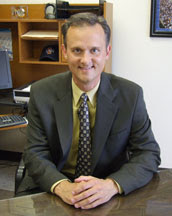As you know, I have become very passionate about the impact of technology and the skills our students will need to be successful in the global economy of the 21st century. The September edition of Educational Leadership magazine devoted their entire issue to exploring "Teaching for the 21st Century".
The "Partnership for 21st Century Skills" has been one of the leaders in advocating for the incorporation of 21st century skills into our public education system. They have developed a "Framework for 21st Century Learning" which identifies the skills and knowledge students will need to be contributors in the global economy of the 21st century. There are four components that describe these skills and knowledge:
1. Core subjects and 21st century themes
--such as language arts, science, math, global awareness, and financial literacy
2. Learning and innovation skills
--such as creativity, innovation, critical thinking, and problem solving
3. Information, media and technology skills
4. Life and career skills
--such as initiative and self-direction
In one of the articles, Peter W. Cookson Jr. stated that to meet these needs, "we must think outside the box of conventional schooling." He follows this with a very powerful paragraph about school reform.
"To start, we must overhaul and redesign the current school system. We face this great transition with both hands tied behind our collective backs if we continue to pour money, time, and effort into an outdated system of education. Mass education belongs in the era of massive armies, massive industrial complexes, and massive attempts at social control. We have lost much talent since the 18th century by enforcing stifling education routines in the name of efficiency. Current high school dropout rates clearly indicate that our standardized testing regime and outdated curriculums are wasting the potential of our youth."
He goes on to state,
"If we stop thinking of schools as buildings and start thinking of learning as occuring in many different places, we will free ourselves from the conventional education model that still dominates our thinking. Socrates did not teach in a conventional classroom; his classroom was wherever he and his students found themselves." Those are very powerful statements that should cause us to pause and critically reflect on our current practices. Specifically, it makes me ponder to what extent our current philosophies, practices and structures are preparing our students for the complex and challenging world they will face as they enter the global economy of the 21st century. However, it also raises some very difficult questions.
How do schools meet these challenges while under the thumb of NCLB requirements and standardized testing?
Can NCLB and teaching for the 21st century co-exist in a meaningful way?
How do we make legislators and parents understand that education does not have to look like it did when they were in school?
How and when do we provide opportunities for kids to experience "schooling" outside the four walls of the school building?
How do we make legislators and parents understand that the traditional agrarian calendar followed by public schools is antiquated and no longer meets the learning needs of students in today's information-rich society.
How do we provide Web 2.0 access for our students, while at the same time upholding our legal and moral responsibilities to ensure student safety?
How do we give teachers the tools, training and freedom to teach the 21st century skills of inquiry, innovation and critical thinking?
As Cookson stated in his article, "Just as the Berlin Wall fell in 1989, the wall of conventional schooling is collapsing before our eyes." My hope is that instead of stubbornly clinging to the past, public education will react in a proactive manner so that we can participate in and help to create the structure within which we will meet these challenges. If not, I am worried these changes will be done "to us" as opposed to "with us".
Tuesday, November 3, 2009
Subscribe to:
Post Comments (Atom)




No comments:
Post a Comment